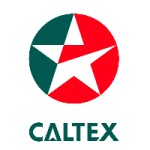
It’s a new financial year, and it’s time for some housekeeping. Is your business spending money on things you can do without? Are you keeping track of employee expenditure? Would you be better off consolidating your software rather than pay for subscriptions for multiple platforms? Here we talk to two business owners who have streamlined their business practices to cut down on waste, and provide a housekeeping checklist to help you do the same.
Don’t be afraid to outsource
Sage Greenwood, the managing director of premium model and talent agency WINK Models, says that outsourcing the functions the business doesn’t need on a full-time basis has helped to streamline the agency’s processes, cut down on waste and made it more efficient.
“Two recent examples are digital marketing and accounts,” she says. “Both have been outsourced to external firms, experts in their field, who work on specific projects.
“This means cost savings as well as access to expertise which we may otherwise not have had.”
Monitor your accounts
Greenwood says WINK also built an online platform to manage its talent database, and further streamlined its processes by integrating the platform with its accounting software.
“(It) manages our team of 700+ models nationally,” she says. “The software manages a variety of details including their profiles and personal details, booked job details and time sheets.
“We’ve integrated this technology into our accounting software, so the two are able to seamlessly process weekly payroll, which is amazing as paying our employees weekly is something that is really important to us as an agency and having this software has saved so much manual processing time.”
Keeping track of employee expenditure for business purchases and ongoing expenses such as digital subscriptions and fuel for fleet vehicles or a company car is another way to increase efficiency, and cut down on waste.
“We track week on week how our operating expenses are comparing to previous months as well as budget and tweak any changes where necessary,” Greenwood says.
Businesses can further monitor fuel expenditure through fuel capping. For a low monthly fee, some companies offer fuel cards that limit the amount of fuel that can be purchased in a certain time period on a company card. Some even offer a discounted fuel rate, and can provide businesses with an ATO-approved monthly invoice and seamless integration with cloud-based accounting software platform Xero. This ensures all fuel expenses are accounted for at the end of the financial year, saving you time and money.
Find out how Caltex’s StarCard can help eliminate waste in your business.
Review your suppliers
Another tactic Greenwood uses to streamline and eliminate any unnecessary fat is asking suppliers to be as competitive as possible.
“We’ll get multiple quotes a year from other suppliers and ask if our suppliers are able to match what they are offering or better our service in any way,” she says.
“For me, it’s really important to consistently manage our outsourced relationships to ensure we’re getting the most out of them.”
Integrate your software
In line with a 2015 report by PwC that showed Australian businesses could unlock $49.2 billion in economic value by embracing mobile and digital platforms over the next 10 years, the founder and head of growth at digital marketing agency King Kong Sabri Suby says his business makes a conscious effort to use one core piece of software called InfusionSoft to streamline processes.
Like Greenwood, Suby strives for software integration. “Where there are areas InfusionSoft can’t service, we set up integrations through Zapier to work with InfusionSoft,” he says.
“The communication is then automatically transported to InfusionSoft so that we do not have a double up of records.”
He said efficiency was key to his business success.
“The way I look at any company purchase is, is it essential to running the business? Will it help us do what we currently do, better? Anything that leads to efficiencies is worthwhile,” he says.
To do list – how to eliminate waste in your business
Evaluate your business processes
Take stock of the way you operate and make changes to streamline it where possible. Automating certain processes can ensure staff skills are being utilised in the best possible ways and can increase productivity.
Investigate the potential of third-party providers
Engaging a specialist provider outside your business to facilitate certain tasks or manage distribution of goods to clients and customers can cut down on waste and allow you to focus on what you do best.
Assess your fuel card provider
Finding a provider with an extensive and robust expense management system that can be integrated with your accounting software will save you time and money in the long run.
Investigate the benefits of fuel capping
If your business has company cars and fleet vehicles, capping is an excellent way to be able to track and control your spend on fuel.
Re-evaluate staff duties
Trusting and empowering staff with greater ownership of their duties allows them to develop and learn and become a good ambassador for your brand.
Broaden relationships with partners
Make sure you have a clear line of communication with your partners and sponsors so you can both fulfill expectations and set yourself up for success in the coming year.

Caltex has is committed to working with Australian businesses. As the nation’s largest fuel network, we supply high-quality fuels to a diverse number of customer segments, we offer everything you need to help drive your business.


COMMENTS
Reader comments have been turned off on this post.